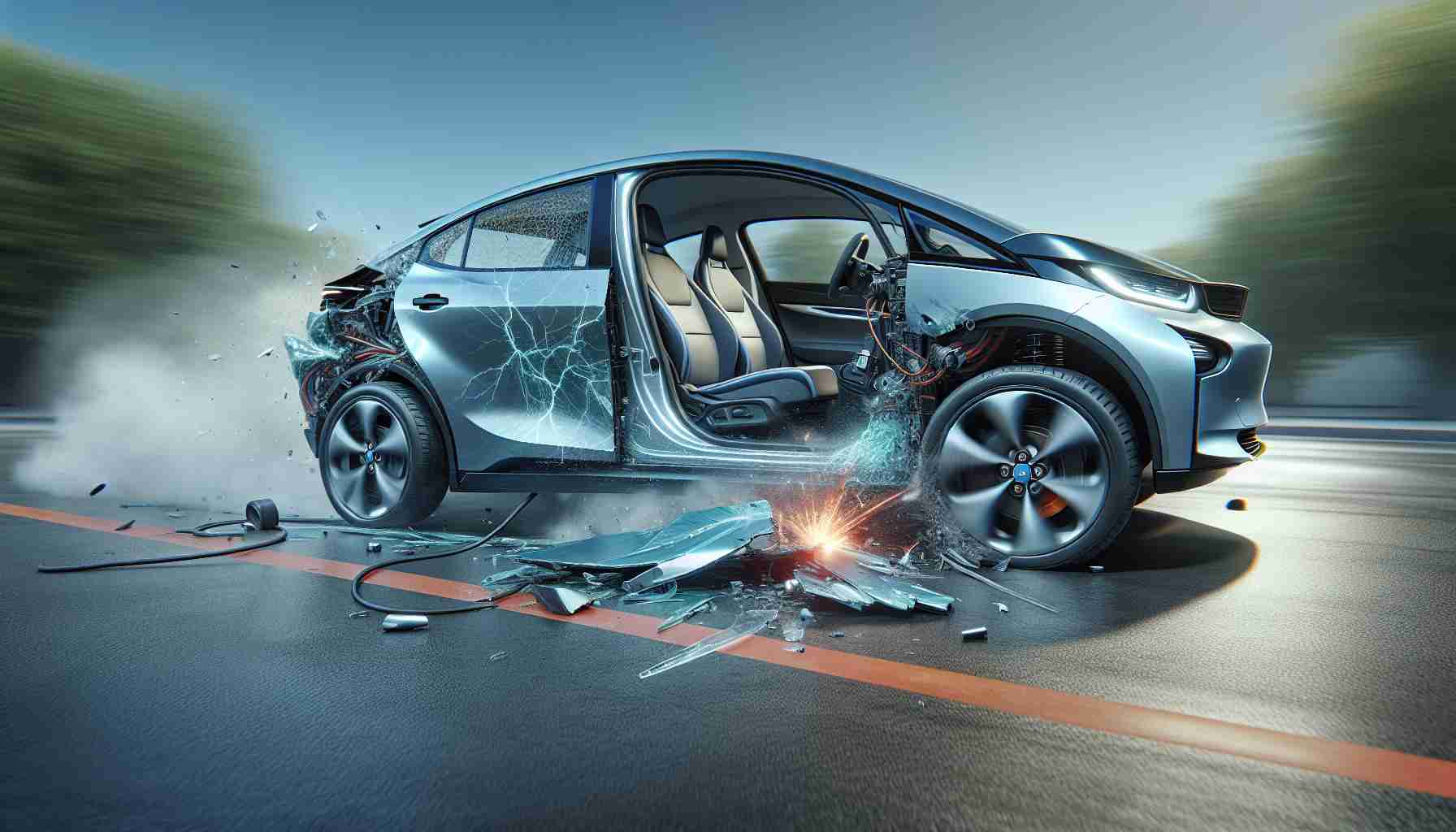Revolutionizing Safety in the EV Era
The dawning age of electric vehicles (EVs) is transforming safety benchmarks, with particular attention on the resilience of high-voltage battery systems. Leading this transformation are global bodies like the Society of Automotive Engineers (SAE) and the International Organization for Standardization (ISO), who set the gold standard in crash and mechanical testing.
Lakshmi Prasad Bhatta, a veteran in crash safety with more than two decades of expertise, has been a pivotal force in these advancements. Going beyond fundamental safety protocols such as FMVSS and UNECE is key, he believes. In his role with the US Technical Advisory Group for ISO, Bhatta champions rigorous testing methodologies that mirror real-world scenarios. He asserts that SAE and ISO guidelines offer a blueprint not just for compliance, but for preemptive challenge management.
Innovative Solutions for Complex Challenges
In the quest to bolster EV crash safety, cutting-edge engineering is essential. A critical focus is on averting thermal runway incidents from crashes, which can threaten battery compartments. Bhatta’s novel side sill reinforcement design stands as a testament to harmonizing protective barriers with energy absorption mechanisms. This innovation showcases the delicate balance between structural strength and dissipation of crash energy.
The intricacy of EV safety tests arises from the convergence of mechanical, electrical, and thermal interactions. Multi-physics computer-aided engineering tools have become invaluable, offering precise insights into potential crash outcomes. Bhatta emphasizes that predictive simulations, aligned with SAE and ISO standards, are crucial for early vulnerability detection in design processes.
Global Momentum and Future Outlook
International regulatory bodies are increasingly vigilant about EV battery safety. Indian regulators, for instance, have adopted stringent EU-aligned safety norms, compelling manufacturers to push boundaries. Bhatta notes that while regulations lay the groundwork, standards from SAE and ISO drive industry players to surpass them, fostering a dynamic relationship between innovation and compliance.
The progression of battery technology, particularly through the adoption of safer lithium iron phosphate (LFP) and emerging solid-state batteries, is seen as transformative for both safety and efficiency. This evolution in materials and design is set to redefine the future of electric vehicle safety and sustainability.
Bhatta highlights that ensuring battery safety transcends the vehicles themselves, extending to public safety and infrastructure. Through cross-sector collaboration, the automotive industry is working towards a future where EVs are synonymous with safety and environmental responsibility.
Electric Vehicles: A Catalyst for Technological Innovation and Controversies
The electrification of transportation is a pivot point in both technological innovation and societal evolution, offering a wealth of new knowledge and sparking debates that will shape the future. Electric vehicles (EVs) are not merely transforming safety standards; they are also influencing the entire ecosystem surrounding automotive engineering and infrastructure development.
Beyond Safety: Environmental and Technological Impacts
The shift to electric vehicles promises significant environmental benefits, particularly in reducing greenhouse gas emissions. As the automotive industry leans towards cleaner and more sustainable energy sources like renewable electricity, EVs are aiding in the global fight against climate change. This transition has sparked not only advancements in battery technology but also led to an increased focus on developing sustainable charging solutions.
However, this move towards an electrified future brings its controversies. One such issue is the environmental impact of mining for lithium, cobalt, and other rare earth elements essential for battery production. Critics argue that while EVs offer reduced emissions during their operational life, the extraction and processing of battery materials may offset these benefits. This debate continues to emphasize the need for sustainable mining practices and innovations in recycling technologies.
Infrastructure and Societal Barriers
A significant challenge in the EV revolution is the development of adequate infrastructure. Although the benefits are tangible, questions arise about the readiness of existing electric grids to handle the increased demand. Nations worldwide are investing heavily in upgrading their power infrastructure to prevent potential bottlenecks. Moreover, expanding charging networks, especially in rural areas, remains crucial to widespread EV adoption.
Social acceptance of EVs also faces obstacles ranging from range anxiety to the perceived inconvenience of charging compared to traditional refueling. Will society fully embrace EVs once these hurdles are addressed, or are deeper psychological barriers at play?
Innovations Ushering a New Era
Advances in battery technology, including solid-state and lithium iron phosphate (LFP) batteries, promise to revolutionize the field further. Solid-state batteries, in particular, offer the potential for increased energy density and safety, potentially removing the flammability risk associated with current lithium-ion designs. As more investments pour into research and development, these innovations could lead to EVs with longer ranges and reduced charging times.
In addition to battery innovations, vehicle-to-grid (V2G) technology is gaining traction. This allows EVs to store and feed electricity back into the grid, supporting energy management and reducing strain during peak demand times. The integration of V2G can potentially alter energy consumption patterns and provide a more resilient energy network.
Conclusion: A Balanced Perspective
The future of electric vehicles is intertwined with both formidable challenges and transformative possibilities. As we navigate this trajectory, it is crucial to weigh the advantages against the environmental and infrastructural hurdles. The collaboration between automotive industries and governmental bodies worldwide will be pivotal in realizing the promise of a sustainable, electric future.
For further insights into the developments in the automotive sector and sustainable energy solutions, visit SAE and ISO.







